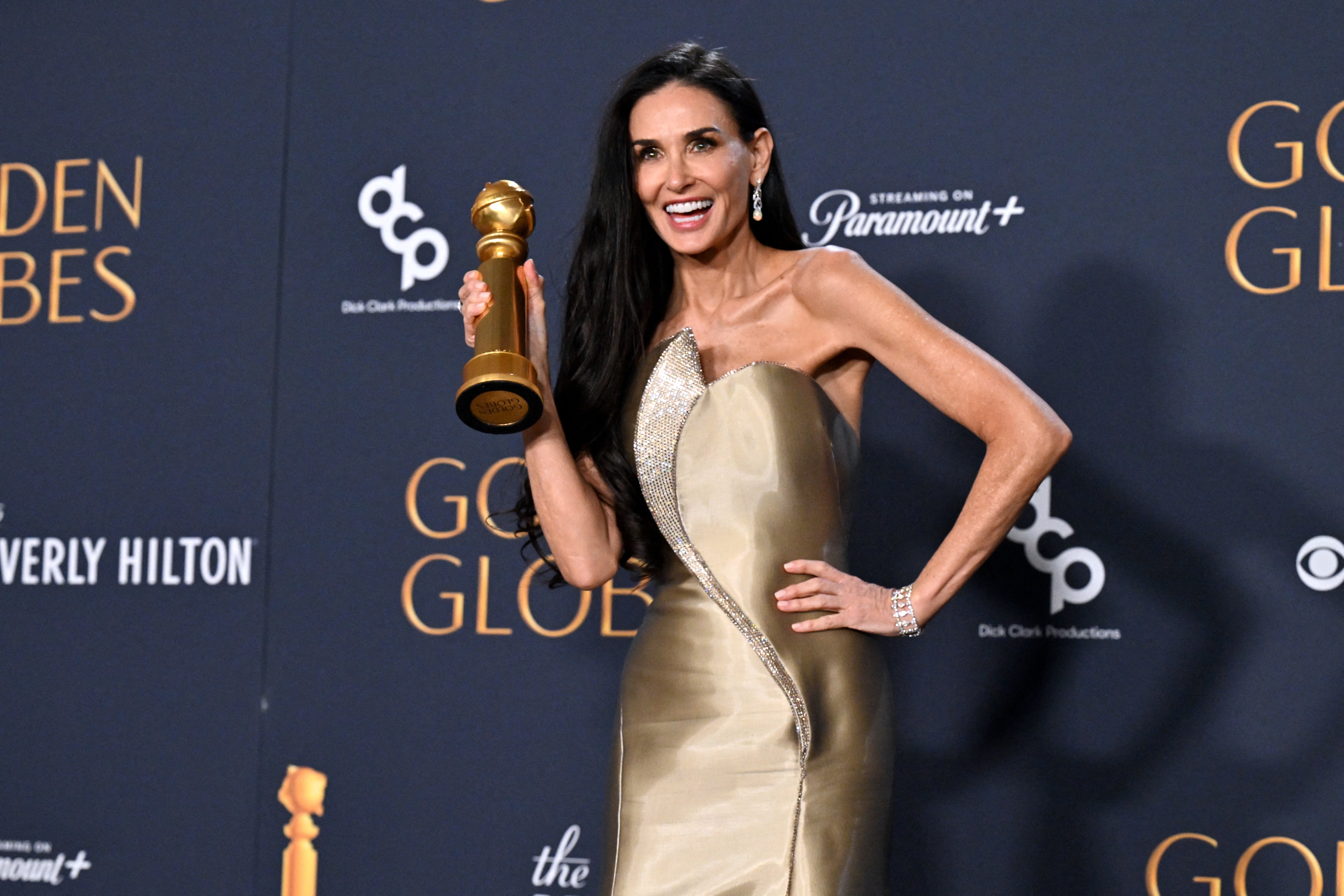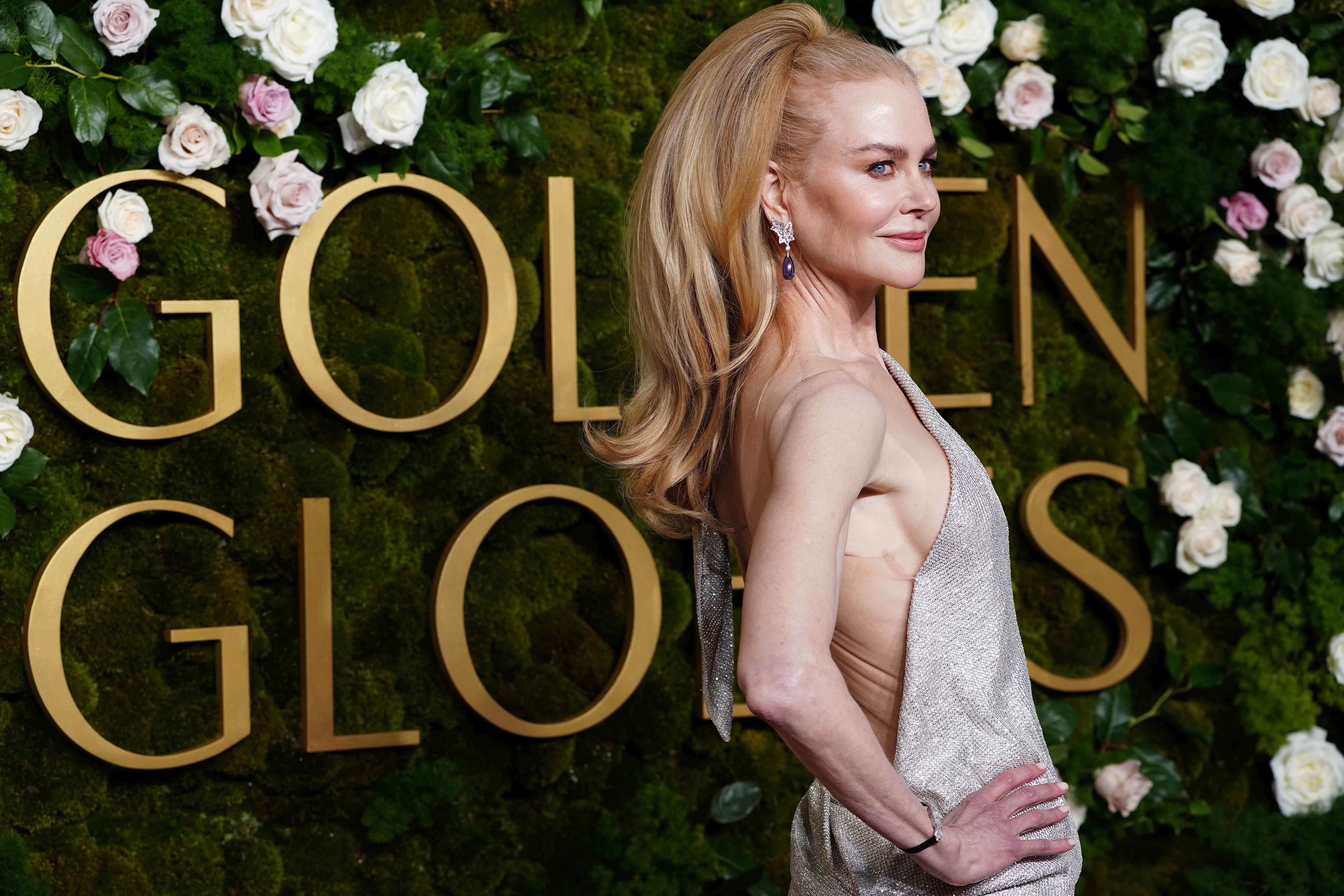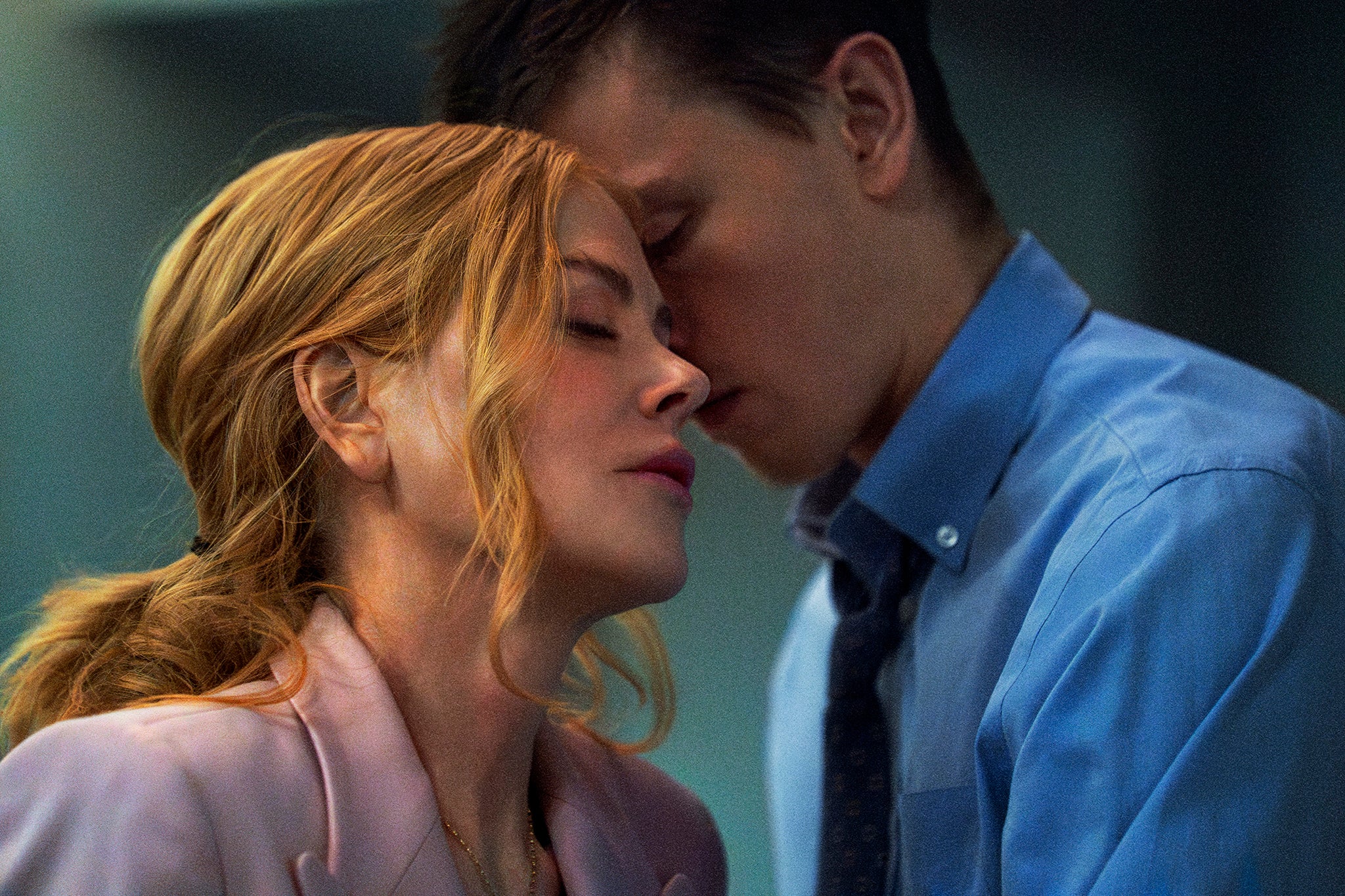Being Bridget: Why Gen X fifty-something women are choosing to date younger men
As the new Bridget Jones film sees our heroine dating a younger man, Eleanor Mills applauds the flipping of the age-gap relationship genre and explains why so many of her female friends are now making down-age dating their preference


It’s been a good few months for Queenagers on screen – older women who are finding themselves in their element. Demi Moore, 62, has just won a Golden Globe for her performance in The Substance, whose piercing narrative plays out through the lens of a horror movie about ageing, objectification and misogyny in Hollywood.
In a few days, fifty-something Renée Zellweger will be back as Bridget Jones in Mad About the Boy, based on Helen Fielding’s final book in the series. In this latest instalment, we’ll see Jones involved in a romance with a much-younger lover – played by The White Lotus and One Day breakout Leo Woodall – following the loss of her husband, Mark Darcy (Colin Firth).
This follows in the heels of Nicole Kidman’s latest film Babygirl in which she plays Romy Mathis, a female CEO in her fifties who has an affair with a young male intern. The role won Kidman the Best Actress award at the Venice Film Festival alongside a plaudit for the “most erotic sex scene”.
Since the dawn of cinema, female actors have been given a “shelf life” – unlike their male counterparts, who enjoy a “full life”. Only 9 per cent of UK audiences can name 15 women aged over 45 who appear regularly on screen, compared with 48 per cent who can easily name 15 men.
This is why the recent spate of leads played midlife stars such as Kidman (57), Moore (62) and Zelwegger (55)matters. Finally, there is a new conversation that tackles how older women are perceived in our culture.
Mad About the Boy joins The Substance and Babygirl in posing an even bigger question: in a society that values women primarily for being young, attractive, fertile and available, what is an older woman actually for? If a third of women in this age group don’t have children, what is our value once the beauty arms race has spat us out? Where are the signposts for what a successful older life might look like?
It’s a question I explored in my book, Much More to Come, which unpicks the conditioning midlife women have been subjected to about ageing. Many of us have been groomed by Hollywood – and the media more broadly (“cankles” or “bingo wings,” anyone?) – to view ourselves through a male lens and judge our bodies tyrannically. This was brilliantly depicted by Moore in The Substance, and Babygirl offers an equally exposing commentary on how ageing can be reframed.
It’s not just the erotic sex scenes between an older woman and a younger man – it’s also the depiction of a midlife woman grappling with societal expectations. In one scene, Kidman’s character is shown getting Botox – needles and all – and is then reprimanded by her daughter: “Why do you do that to yourself? You look like a dead fish!” For Kidman, who has endured relentless scrutiny over her own appearance, the irony of this scene will not be lost.
Written and directed by Halina Reijn, Babygirl twists the usual “older woman, younger man” narrative. A BDSM plotline involving a powerful older woman and a man some years her junior typically centres on the woman being punished for daring to be powerful. Here, the affair is about Kidman’s character exploring her own desires. The film opens with her having sex with her husband (Antonio Banderas), but her dramatic orgasm is fake. We see her wait for him to fall asleep before running into another room to watch porn so that she can achieve climax.
Halina says the movie was inspired by a story she’d heard about a woman who had been faking orgasms in her marriage for two decades. The younger man in Babygirl isn’t just a physical distraction: he represents a mindset shift. He’s more open-minded about sex, and helps Kidman’s character to really think about what she wants and needs for the first time in her life.

Among the midlife women, this narrative is familiar. “I’ve only really started exploring my own sexuality and asking for what I want in relationships since my divorce,” admits Jane, 53. Like Kidman’s character, she has found younger men to be “more open about what sexual play can look like – they have a more curious, exploratory approach than men of my generation”.
Fiona Lambert, the author of Invincible Not Invisible, who is now writing a book about dating in midlife, agrees. “I’ve had to challenge my own limiting beliefs about what men want. I’ve found that younger men like the idea of being with an older woman. When I reduced my age range on Tinder from 46 to 42, I had 3,000 men who wanted to match with me.”
My friend Mandy laughs when I tell her this. “She needs to go much younger. I’ve got a line of men in their twenties who are all super keen! One told me he was 25, but I think he was younger. Lots of twentysomething men are pretending to be older so they appear in searches for older women. If you’re fit and confident in your fifties, younger men are definitely drawn to that.”

Lambert, who is 61, adds that she was “rather surprised” by her younger admirers, and advises others to “throw off assumptions and be bold”. She notes that younger men often describe women their own age as “too much drama” or “complicated”; younger women often want children or a serious relationship – things she’s already done.
Zellweger herself defended Jones’s 22-year gap between the 51-year-old character and 29-year-old lover Roxster, describing it as “nothing new”. The film’s director, Michael Morris, further waded into the debate telling The Independent: “If we’re going to judge relationships at all, it should be on who they are and how they behave with each other. There should be nothing to say, ‘Oh it’s an older woman’.”
For my generation, the appeal of younger men isn’t just their physicality. “Midlife women tend to keep themselves in better shape,” says Jane. “But there’s also a Victor Meldrew quality to men my age. I was married to that for 25 years – it’s the last thing I want. Younger men are much more admiring of my success and confidence, which actually turns them on, whereas men my age can feel belittled.”
Yet age-gap relationships can still feel problematic. In Babygirl, a scene where Kidman’s young lover dances semi-naked felt vaguely disturbing to me; he looked like one of my children and came across as young and vulnerable. The film’s overarching message is that age is irrelevant, that these two people share a true connection across the decades. But as with older men dating younger women, I wonder if genuine connection can truly flourish when there’s such a disparity in life experience.

Lambert dismisses these concerns. “Sometimes I reference a Seventies TV show my 41-year-old boyfriend hasn’t heard of, but he’s intelligent and widely read, so it’s not a problem.”
Ultimately, the sexual revolution cuts both ways. If it’s acceptable for midlife women to date younger men, perhaps we need to rethink our assumptions about older men dating younger women, too. If it’s about genuine connection, then maybe we need to be less hung up on the age gap itself.
Intelligent films like Babygirl deserve applause for tackling these subjects and making older women part of the conversation. Who knows where it could lead? You might be pleasantly surprised.
Eleanor Mills is the founder of noon.org.uk, ‘Home of the Queenager’, and the author of ‘Much More to Come: Lessons on the Mayhem and Magnificence of Midlife’, published by HarperCollins
Join our commenting forum
Join thought-provoking conversations, follow other Independent readers and see their replies
Comments

Bookmark popover
Removed from bookmarks